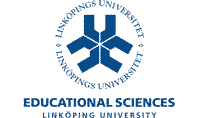|
|
| |
| SYLLABUS |
| Educational Activities with the World in Focus ,
7,5 ECTS Credits |
| |
COURSE CATEGORY Fristående kurs
MAIN FIELD OF STUDY
SUBJECT AREA
|
|
COURSE CODE |
|
924G09 |
|
| AIM OF THE COURSE |
On completion of the course, the student should:
- be able to account for how internationalisation work may manifest in a pre-school/school
- be able to present potential consequences of global and local internationalisation for individuals, school and society
- be able to demonstrate an understanding of the educational activities of other cultures
- be able to demonstrate an understanding of the professional educationalist's social tasks in different cultures
|
| CONTENTS |
| The course turns both to students on the teacher programme and active teachers. The course highlights how internationalisation may manifest for teachers. Different perspectives of internationalisation for individuals, school and society are presented and discussed. The educationalist's activities and specific social tasks in other cultures are problematised and studied. |
| TEACHING |
| The aims are processed in both campus-based education and based on placement. The work is organised as individual work and in different types of groups. The work is based on the activity of students and the interaction between them in the environments created in the course. The working methods vary and consist of individual work and processing in groups with learning management system as the basis. Seminars, lectures, field studies and peer review are also included. In the course, there may be a possibility of a study tour to Ethiopia, paid by the students themselves, with practical participation in the activities of the country. |
| EXAMINATION |
The intended course learning outcomes are examined through documentation, which is also the basis for seminars. The intended course learning outcomes are also examined through presentation of development work on internationalisation. Examination is carried out both orally and in writing.
Examination codes
SRE1 Report, 3 HE credits
MRE1 Presentation of development work, 2.5 HE credits
SRE2 Presentation of development work, 2.0 HE credits
Students failing an exam covering either the entire course or part of the course two times are entitled to have a new examiner appointed for the reexamination. |
| ADMISSION REQUIREMENTS |
Ongoing teacher education, an educational degree or experience in teacher education is required for admission to the course. |
| GRADING |
| A grade of Pass or Fail is given for the course |
| CERTIFICATE |
| Course certificate is issued by the Faculty Board on request. The Department provides a special form which should be submitted to the Student Affairs Division. |
| COURSE LITERATURE |
|
The course literature is decided upon by the department
in question. |
| OTHER INFORMATION |
Planning and implementation of a course must take its starting point in the wording of the syllabus. The course evaluation included in each course must therefore take up the question how well the course agrees with the syllabus.
The course is carried out in such a way that both men´s and women´s experience and knowledge is made visible and developed. |
| |
Educational Activities with the World in Focus
Pedagogisk verksamhet med världen i fokus |
| |
Department responsible
for
the course or
equivalent:
ISV - Department of Social and Welfare Studies |
| |
|
|
|
|
|
| Registrar No: 242/07-41 |
|
Course Code: 924G09 |
|
|
|
| |
|
Exam codes: see Local Computer System |
|
|
|
| Subject/Subject Area : |
|
|
|
|
|
| |
|
|
|
|
|
| Level |
|
Education level |
|
|
Subject Area Code |
|
Field of Education |
|
| G1X |
|
Basic level |
|
|
UV1 |
|
SA |
|
|
The syllabus was approved by the Board of Educational Sciences 2010-05-12
|
|
|
| |
